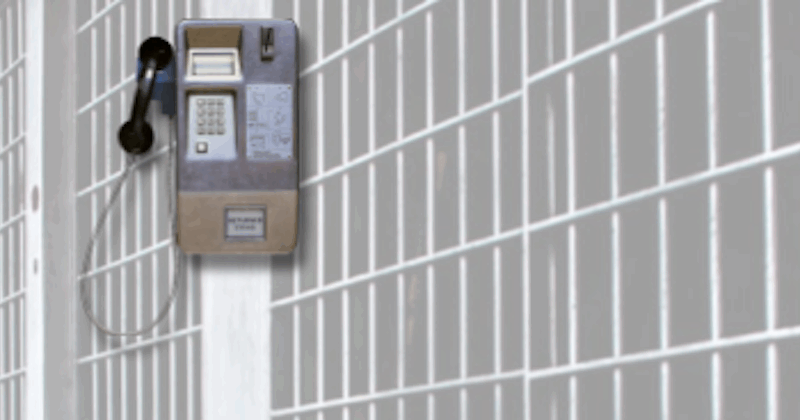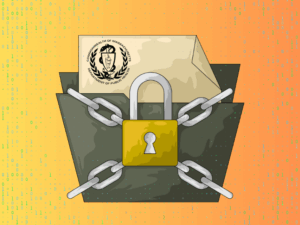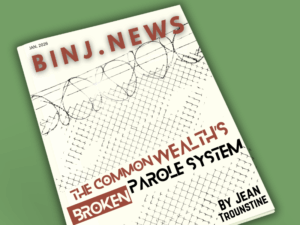Mass is still gouging the families of prisoners on phone fees. Will lawmakers finally change that?
For the past 10 years, Beverly Ross has spent hundreds of dollars a month on a middle-school teacher’s salary to ensure that her son knows his father, who is incarcerated in a Massachusetts prison.
“My husband has been dedicated to being an involved father,” said Ross, who asked that I use a pseudonym to protect her husband from disciplinary action by prison officials. “He does regular homework sessions with my son over the phone, and my son will talk to him about things he may not want to share with his mom.”
Ross’ most recent bill for Securus Technologies—one of three companies that dominate the prison telecom market—was close to $500. (By comparison, her personal Sprint bill was $87.) “We eventually want to buy a house, but it’s impossible to save when all our money is going to the [Department of Correction].”
Approximately one-in-three families with an incarcerated loved one go into debt over the cost of calls and visits, according to Bianca Tylek, executive director of Worth Rises, a national advocacy organization that works to end the exploitation of people by the prison industry. Eighty-seven percent of those carrying the burden are women, disproportionately women of color.
But legislation pending in the Massachusetts House of Representatives could bring an end to these costs for families. The Bill (H 1900), sponsored by state Rep. Chynah Tyler and scheduled for a House vote by April 15, would eliminate all fees related to communication services in correctional and detention facilities across the state, including phone, video, and email. (A companion Senate bill—S 1559—is scheduled for a May 3 vote.) Similar legislation was recently passed in Connecticut, and several more states have campaigns underway. In addition, a number of cities—including New York City, San Francisco, and San Diego—have instituted free calls in all jails and juvenile detention centers.
***
Inflated phone call fees in Massachusetts prisons and jails stem from telecom contracts that have long prioritized revenues and kickbacks over affordability. The DOC and the county sheriff’s departments receive commission payments from service providers based on per-minute rates and call volumes. Higher rates mean higher commissions. Plymouth County, for instance, receives a baseline commission of 76% from Securus that increases to 80% if revenues exceed $1.2 million. Although Bristol and Berkshire counties recently eliminated commissions, their rates have remained at 14 cents per minute (down from an earlier rate of 21 cents). By contrast, Rhode Island rates are just under 3 cents.
Last spring, the Massachusetts Sheriffs Association agreed to provide 10 free call minutes a week in recognition of the hardships caused by the pandemic. (The DOC instituted two free 20-minute calls a week in state prisons at the start of the Pandemic but rolled them back last June.)
At the same time, facilities across the state introduced tablets to provide video calls in place of in-person visits. While the DOC requires purchase of the tablets, some counties distribute them for free and others for rent. Nevertheless, at all sites, video call rates are higher than phone calls.
“We went from free visits to paying $6 for a 20-minute call any day of the week through Securus,” Samuel, a 35-year-old man, who spent three years awaiting trial in Nashua Street jail before being acquitted, said in an interview. He asked that I not use his real name. “They find a lot of ways to drain your income.”
Research has shown that regular phone and video contact, as well as visits during incarceration significantly reduce the odds of reoffending after release and strengthen family relationships. Yet correctional officials in Mass have consistently opposed no-cost call legislation by arguing that telecom commissions pay for “inmate programming.” In an interview in August 2020, when an earlier version of the current bill was under consideration in the Senate, Hampden County Sheriff Nicholas Cocchi said the $820,000 in annual telecom commissions were needed “to provide more programs, more activities, more substance to people while they’re incarcerated so we can then bring them back to the community more apt to be successful and law-abiding and not have the temptation and the opportunities to recidivate.”
Appearing before the Joint Committee on Ways and Means last month, Middlesex County Sheriff Peter Koutoujian repeated that message, arguing: “These monies are not spent on anything except for programs … for inmate, or incarcerated individual, betterments. … If we lose much more of these fundings it will affect our ability to provide programming.”
Efforts to verify the link between phone revenues and “inmate betterments” revealed wildly diverse spending practices across agencies. In Berkshire County, for instance, commission payments prior to 2020 covered only special perks like “take-out pizzas” and “free calling cards,” according to Daniel Sheridan, general counsel for the Western Mass sheriff’s department. “We did not cut any programs due to the elimination of commissions,” he wrote in an email response to questions.
By contrast, in a 2020 letter to constituents, Middlesex County Sheriff Koutoujian cited a list of services covered by phone revenues that ranged from substance use and HIV/AIDS treatment (which are technically not programs, but rather medical care) to electronic monitoring bracelets, yoga classes, and parenting programs. While in Hampden County, an itemized spreadsheet showed that annual commissions of $679,000 in 2020-21 paid for various educational and vocational expenses through the “Inmate Commissary Fund”—including teacher and mentor salaries, inmate work stipends, and reentry services.
***
The use of telecom kickbacks for “programs,” in whatever form, raises troubling questions about the ethics of correctional funding priorities in the state.
“Even if they are providing the most rehabilitative programs available,” says Wanda Bertram, communications strategist for Prison Policy Initiative, “it still wouldn’t be right to fund programs like that via the lowest income people in Massachusetts. That’s the definition of a regressive tax.”
A letter written to Sheriff Koutoujian by 13 Middlesex County residents (and signed by an additional 1,300 residents) in 2020 addresses the issue head-on: “No Matter what, programs should be the responsibility of the government, because the government has chosen incarceration as a public policy. Programs should not be paid for by families who are already struggling to get by.”
The government has had a hard time keeping track of what correctional programs they are or are not paying for and why. A special commission set up by the legislature in 2020 to investigate rising correctional costs and improve transparency concluded, after two years of work, that because of a lack of common definitions and reporting standards across the 14 sheriff’s departments and the DOC, it “could not evaluate appropriate spending levels for programming.” A proposal to create an outside agency to oversee correctional programs spurred sharp push back from the sheriffs on the commission. “Frankly, [the idea] scares the hell out of me,” Essex County Sheriff Kevin Coppinger said during one of the commission’s final meetings in 2022.
The special commission did not address the phone call question, though in a recent interview, Rep. Mike Day, one of the commission co-chairs, rejected the notion that losing phone revenues would mean losing programs. “The idea that our correctional system and those that operate it will have to cut programming if we move to no cost calls is misplaced at best,” the representative said. “We [the legislature] appropriate the funds and ultimately determine at a macro level which programs should be funded or not. If we decide to have no-cost calls, then we understand that it comes with a cost that we will make up through the appropriations process.”
Evidence suggests that filling that revenue gap will be a small adjustment in the scheme of a $1.2 billion correctional budget and will bring enormous relief to the families of incarcerated people. When New York City implemented free phone calls from its city jails in 2019, the city allocated $8 million from the budget to cover $5 million in lost commissions plus $3 million for the cost of the service; calls increased by almost 40%, according to Worth Rises, and families saved $10 million a year. In Connecticut, where the phone bill passed last summer, the legislature has allocated $11 million to cover the gap and families are expected to save $14 million.
Despite sheriffs’ warnings that shifting phone service costs to the government’s tab will inflict a heavy fiscal burden (because of expensive security software needed to monitor, record, and store communications), examples from other jurisdictions show that the real cost of providing the service is far below what Mass families have been paying. Dallas County, for instance, where users still pay, decided to eliminate commissions and was able to negotiate a rate of 1 cent per minute with Securus Technologies, the lowest rate in the country. New York City is paying 3 cents per minute to Securus.
Transferring the burden from impacted families to the state, Bertram of the Prison Policy Initiative points out, will correct the perverse incentives that have long inflated prison phone rates. “When the state is bearing the cost of phone calls, rather than the families,” she said, “it has that extra incentive to negotiate for the lowest possible rate.”
If House Bill 1900 (or Senate Bill 1559) becomes law, Mass will become the second state in the nation to recognize communication as a basic need, akin to food and medicine, rather than a privilege for incarcerated people and their families. For Beverly Ross, the change will bring much needed relief.
“If this [legislation] passes, it will mean financial and emotional stability for the first time in a long time,” she said. “Phone calls are essential for us to keep our family intact.”
This article was co-published with DigBoston








